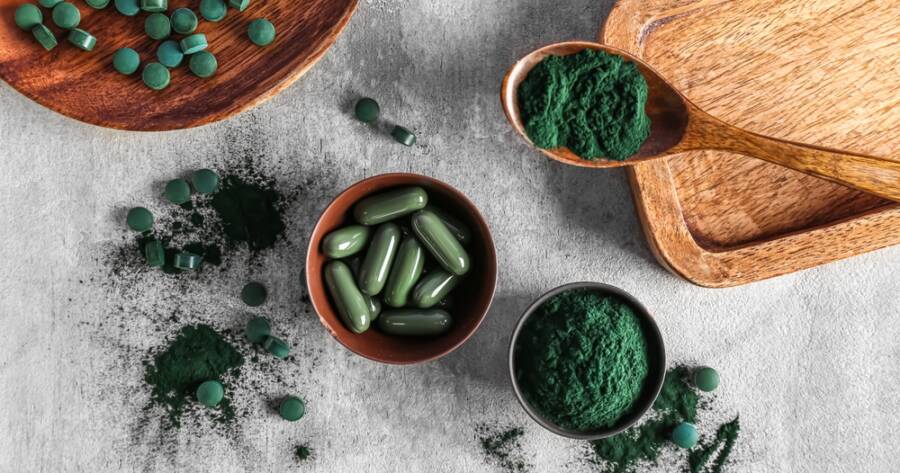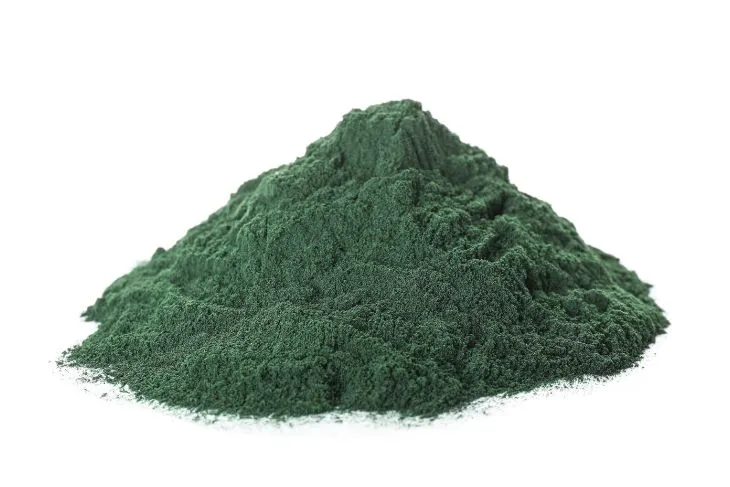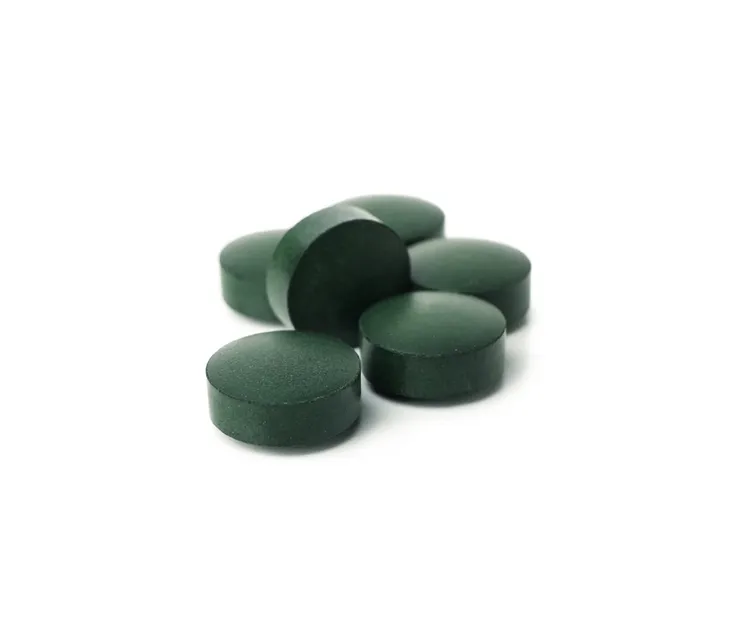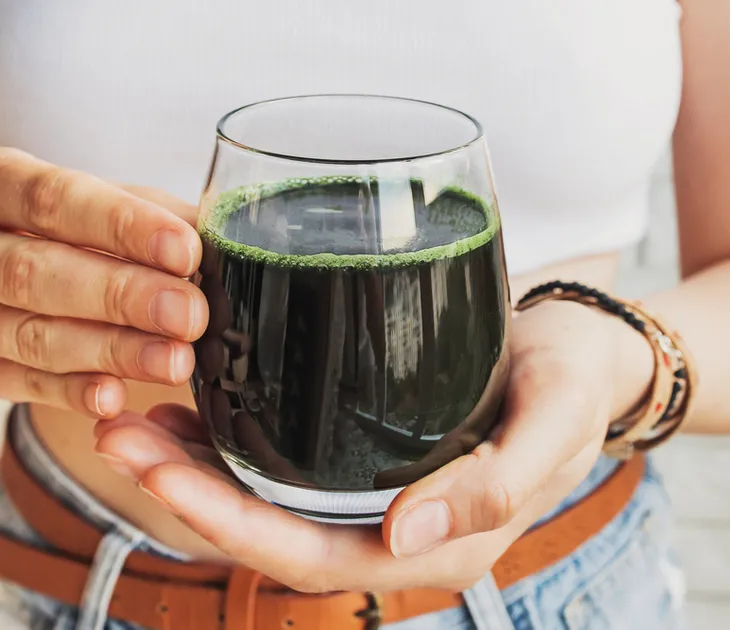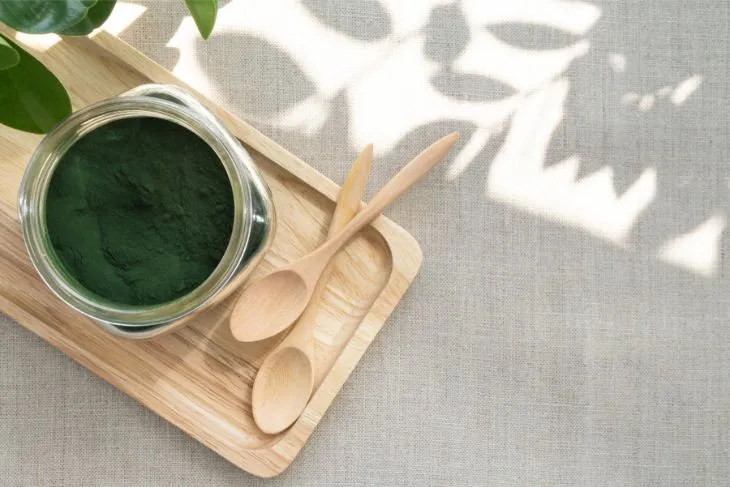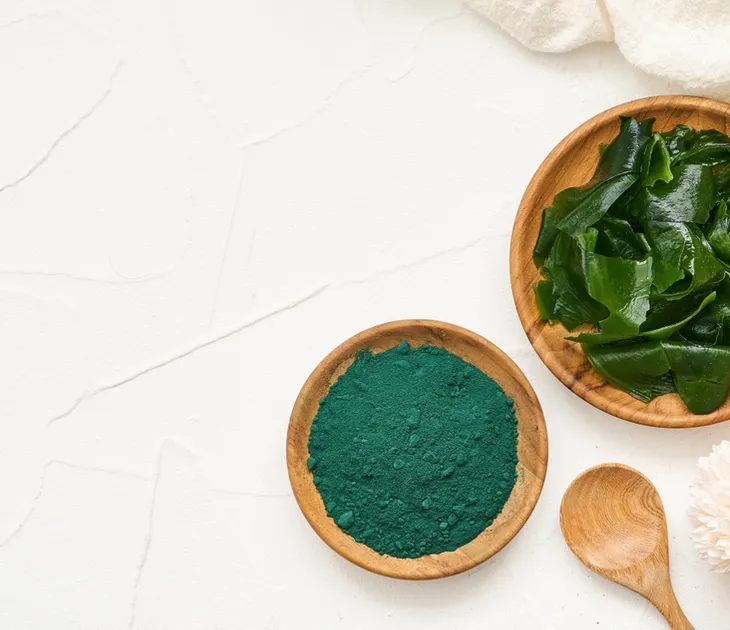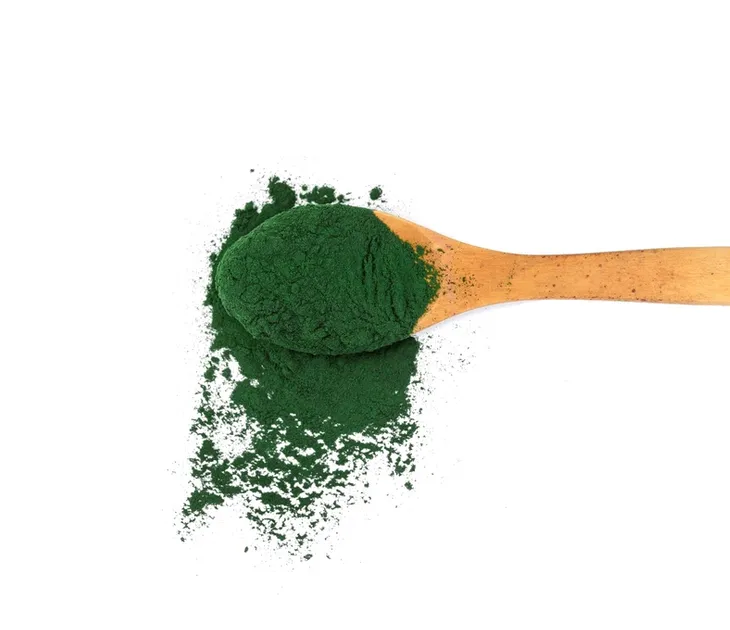Amongst all the other vitamins and supplements out there, you may have seen a curious green powder popping up in your local supermarkets or health foods stores lately. If so, that vibrant powder is likely something called spirulina.
You may have heard the name before, as it has become a pretty popular nutritional supplement lately, but what exactly is this mysterious green stuff? Should you be eating it? What can it do for your health? Are there any side effects or health implications? All these questions will be demystified today as I explain exactly what spirulina is, and how it can affect your health…
What is Spirulina?
Spirulina is a type of blue-green algae found in the wild in warm lakes and oceans. It is rich in many beneficial vitamins and essential nutrients, which is why it has become such a popular superfood. Spirulina is a complete protein, meaning it contains all 9 essential amino acids plus ten times the amount of beta carotene found in carrots.
Spirulina can be found throughout various parts of the world, but because of its dramatic growth in popularity as a dietary supplement, it is now being cultivated in places like China, Australia, and Hawaii. This marvelous little microalgae is actually considered among the world’s oldest food sources. Aztec people consumed it in Mexico in the 16th century and spirulina was reportedly consumed by the people of Chad over a thousand years ago.
Energy Boost
Now that you know what spirulina is, let’s take a look at some of the benefits that have made spirulina the popular superfood it is today. One of the largest benefits of this algae is a big boost of energy.
Advocates of the supplement say this is experienced very quickly after it is consumed, which makes spirulina a popular additive in pre-workout shakes to help improve endurance and fight fatigue. This is because spirulina contains a very high amount of digestible plant protein, approximately 60 to 70 percent by dry weight.
Immune System Support
There are also many claims that spirulina provides exceptional immune system support thanks to its high concentration of vitamins and minerals, which are said to fight infection and help improve cellular recovery and function within the body.
There are currently many studies underway examining the effects of spirulina on the immune system, as well as its potential ability to treat health problems (i.e., attention deficit hyperactivity disorder (ADHD), pre-menstrual symptoms, and blepharospasm, which is a chronic twitching of the eyelids) though there is no conclusive scientific evidence to support these claims at this time.
Detoxifier
Another benefit of this blue-green algae is its claims of being a natural detoxifier. It’s said that spirulina oxygenates the blood and purifies it of toxins and other impurities, which can cause negative health impacts. There are also many claims that spirulina contains high levels of antioxidants and has strong anti-inflammatory properties, which can help balance the body’s Ph level.
The antioxidants control free-radicals in the body and improve overall cellular generation and function. The anti-inflammatory properties are said to minimize the impacts of stress on the body and reduce inflammation in the digestive tract leading to improvements in health issues affecting the stomach and digestive system.
Appetite Suppressant
Spirulina powder and tablets have become a very popular dietary supplement amongst those looking for a natural weight loss solution. This is because many people claim that taking the supplement over time can reduce their cravings and urge to eat, effectively suppressing their appetite by allowing them to eat less and less over time.
Part of the reason for this is the high amount of protein in the algae (60 to 70 percent) and the high concentrations of vitamins and minerals. This means that spirulina gives you the food energy and nutrients you need without sugar or carbohydrates. The question remains though: is this kind of a weight loss method safe or healthy?
Side Effects
As with any other nutritional supplement or regimen, it’s important to consider the possible side effects before adding anything new into your diet. A closer look into spirulina brings up some questions about side effects of taking this nutritional supplement.
Some of the side effects reported include fever associated with the body using the extra protein consumed, headache, dizziness, stomach ache and nausea, thirst and constipation, skin itch or the appearance of red spots on the skin and green or black stools (said to be caused by the detoxification of the colon). If the recommended doses are exceeded, spirulina can even cause liver and kidney problems. It’s important to conduct thorough research and it’s always recommended you speak with your health care professional before incorporating any new supplement into your diet.
Spirulina Controversy: Part 1
On the surface, spirulina truly seems like a miracle food, packed full of vitamins and nutrients, loaded with protein (and we’re all looking for ways to get more plant-based protein in our diets), but look a little closer and you’ll find some serious concerns about this algae supplement. While it is extremely high in protein (at 60 to 70 percent by dry weight), the amount you are actually injecting from a supplement may only be one or two grams.
You would have to consume so much spirulina to add any significant amount of protein to your diet, a fact which can be misleading for many users looking to use it as an alternative food source. There are of course other questions about getting your dietary nutrients from supplements rather than whole foods and questions about how much of the nutrients are really being absorbed by the body. My personal opinion is that whole food sources will always beat dietary supplements in terms of nutrition and effectiveness.
Spirulina Controversy: Part 2
The other controversial topic surrounding spirulina is the question of purity. Is the spirulina you’re consuming clean and pure? This is one of the most important questions to consider when buying this dietary supplement and you’ll want to make sure you know exactly where it’s coming from. Spirulina is grown in warm oceans and waterways all around the world, but because of ever increasing pollution in our water systems, spirulina can be found to contain harmful toxins.
A 2013 study published in the Saudi Journal of Biological Sciences found that samples of spirulina contained heavy metals including lead, mercury, cadmium, zinc, copper, nickel, and even arsenic. While these metals are present in trace amounts, the concern for safety arises when the levels exceed the regulations that are considered safe. Always check the origins and growth conditions of your spirulina to ensure you’re not consuming something more that you bargained for.
